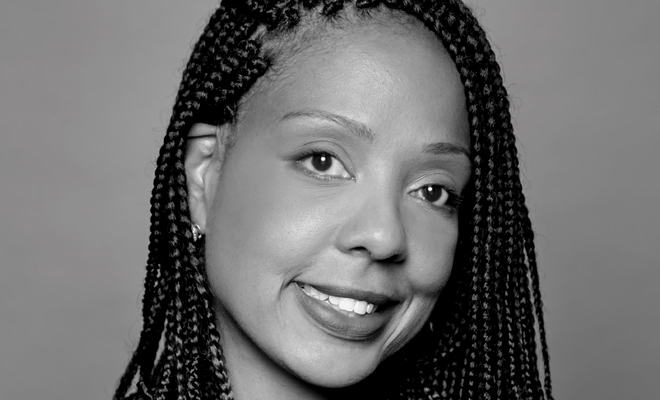
Beginning the Journey
Take a moment. I invite you to close your eyes. Breathe in through your nose and out through your mouth. Breathe in through your nose and out through your mouth. One more time breathe in and then out. Now open your eyes and read the following words with all of your senses. Are you listening with a sense of reflection? Do the words evoke a smell? Perhaps some of them feel like a flower or wet grass or the pinch of a nerve. Set the tone as you embark on this journey of self-discovery. Like any trip, you’ll need to pack a bag. Here’s what you should bring.
Love
It’s easy to tell someone you love them, yet showing love can be more challenging. Love is an action. The Christian Bible says love is patient, kind, not envious, boastful, arrogant or rude. It does not insist on its own way. It is not irritable or resentful, it doesn’t rejoice in wrongdoing but rejoices in the truth.
Humility
Humility puts the needs of others before your own. It’s okay if you don’t have all of the answers and it’s okay to be wrong. Empathetic listening is the ability to give attention wholeheartedly and to understand someone’s situation deeply. It’s the act of stepping in someone else’s shoes.
Openness
Be willing to learn and invite new perspectives into your old ways of thinking. Have a childlike sense of curiosity that is pure and innocent.
Discomfort
Can you identify a time in your life when you felt you were being stretched out of your comfort zone? Looking back, was it also a time of growth? Growth happens in the space of discomfort.
Honesty
Look within yourself and keep it real.
Vulnerability
Don’t confuse vulnerability with weakness. It is the most accurate measure of courage.
Courage
Courage quite literally comes from the heart. The root word of courage is “cor,” which is Latin for “heart.” In order to speak your mind, you have to have courage, which is fueled by the heart.
Joy
Simply put, this is deep-rooted and inspired happiness.
Experiences
All of your experiences have shaped who you are. Take them with you on your journey and be open to new ones with people who don’t look, act or think like you.
Ouch
Embrace the ouch. The ouch is thoughts, feelings and ideas that may surprise you. If you see yourself as a good person, it may be difficult to hear and accept things that conflict with what you believe about humanity. Jane Elliott, an anti-racist educator, said it best. “We all have been indoctrinated, not educated.”
Questions
Questions create transformation, inspire motivation and result in true change. It is okay to have more questions than answers.
Now that you have a suitcase full of tools to help you navigate your journey to embracing social justice, equity and inclusion, where do you start? Everyone starts or is inspired by different experiences. Ask yourself “why?” Why are you choosing to start or continue this journey of self-exploration? Knowing your why will keep you motivated when things get hard. Here are exercises that can help you discover your “why.”
Survey your surroundings.
What is the composition of the individuals working in your organization? Is everyone the same? Are they all white? Are there any Black, indigenous, or people of color? If so, what are their roles? Are there people who are differently abled? Are there people who identify as a part of the LGBTQIA (Lesbian, Gay, Bisexual, Trans, Queer, Intersexed, Asexual) community?
Ask yourself how your surroundings got like this.
How did the people who work in your company get hired? How did you get hired or become a business owner? After working with several companies in the Capital Region, I’ve found it is common for family members to work within the same organization. I’ve also seen that people who work in the same companies tend to live in the same neighborhoods. Julia Freedland Fisher, director of education research at the Clayton Christensen Institute, found that how people get a job often comes down to that old maxim: it’s not what you know, it’s who you know. She estimates that up to 70 percent of all jobs are published on publicly available job search sites, but research has long shown that upwards of 80 percent of those jobs are filled through networking.
Unequal networks between white and BIPOC job hunters yield a lack of access for BIPOC. It is not a lack of talent, but a lack of access. Becoming an ally is one of the first actionable steps you can take. It is a process of learning and becoming aware of your privilege and using it to stand in solidarity with groups that have been marginalized. Dr. Lila Watson summed it up perfectly: “If you have come here to help me, you’re wasting your time. If you have come because your liberation is bound up in mine, then let us work together.”
Waking up to view the world equitably is a lifelong journey. You will need to use each one of the tools in your suitcase daily as you start to learn new ideas and thoughts and relearn notions you previously internalized. I implore you to extend grace, stand in truth and lead with courage. In the words of Iyanla Vanzant, “It is time for you to move, realizing the thing that you are seeking is seeking you.” ■
Written by: Kathleen McLean
Photography by: Saratoga Portrait Studio
Kathleen McLean is president of The McLean Group, a New York State certified Minority Women Owned consulting firm that partners with organizations to create customized solutions that specialize in diversity/inclusion, team building and leadership development. Kathleen received her bachelor’s degree in social work from Buffalo State College, a master’s degree in social work (management concentration) from the State University of New York at Albany, and a master’s in business administration from the State University of New York at Empire State College. She received a Diversity Training Certificate through Diversity Training University International in October 2017. She is also an adjunct instructor at Russell Sage College. In May 2021, she was named one of Albany Business Review’s Power 50.







